CEO Talks: Cotopaxi’s Davis Smith on Stepping Down From His Purpose-driven Company
- Oops!Something went wrong.Please try again later.
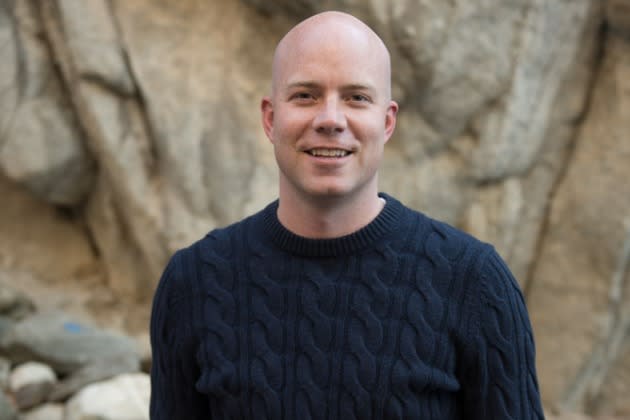
Davis Smith had an unconventional upbringing. The founder and chief executive officer of Cotopaxi, the colorful backpack and outerwear brand, was the son of an adventurer and lived in a variety of countries, including Ecuador and the Dominican Republic, as a child. In addition to survival skills, Davis got a life lesson in giving back to people who were not as fortunate.
It was this dedication to helping others that Smith embraced when he started Cotopaxi in 2014. The brand donates a percentage of its revenue every year to advance education, health and livelihoods around the world — a mission that attracted the attention of Bain Capital Double Impact’s fund, which invested $45 million in the company in 2021.
More from WWD
But Davis, a devout member of the Church of Jesus Christ of Latter-Day Saints, is making an even bigger statement in July when he steps down as CEO of the $100 million company to take on a missionary role in the church. To run the company during his planned three-year absence, Davis has been beefing up the management team, bringing in former Eddie Bauer CEO Damien Huang as president to take over the reins when he leaves this summer, along with other key executives.
Here, Smith talks about his formative years, his charity work and how he found a team to run Cotopaxi that is in lock-step with its mission.
WWD: Walk us through your background and the history of the brand.
Davis Smith: I moved to Latin America when I was 4 when my family left the United States. We moved to the Dominican Republic and I lived there for a number of years. Then my family moved to Puerto Rico, and then down to South America to Ecuador, where I lived into my teenage years. My childhood was very unique, not only because of the exposure to different countries and languages, but because my dad was an adventurer. So we spent a lot of time in the outdoors. We’d go survive on little uninhabited islands where we made our own spears to catch fish. We made our own raft and floated down the Amazon River, we climbed in the Andes and on volcanic craters, so I developed a deep love for the outdoors. I now realize that’s not normal behavior, but it’s something I still love to do.
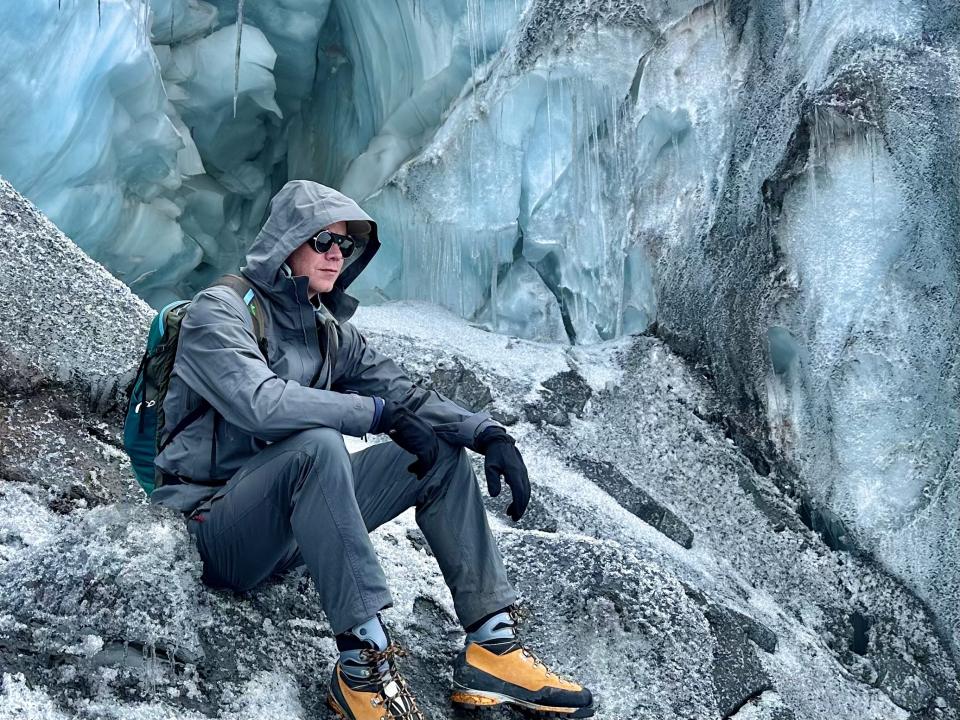
WWD: What about your mother?
D.S.: My family had no money, we were not wealthy. But compared to those around us, it seemed like we had so much. For every adventure my dad had, my mom had some kind of activity planned around serving others. We had this little safe that my dad had written the letters BOSS on: the Bank of Smith’s Savings. We would meet once a week and deposit money. I still have this ledger, I was just going through it a few weeks ago, and I was depositing 13 cents and 20 cents. And then there were withdrawals, which were around $20, which was a lot of money, but it was to buy Christmas gifts for an orphanage or to help some family in need. So a lot of my childhood is around learning to save, but also learning to sacrifice and give back.
WWD: That experience appears to have had quite an impact on you.
D.S.: I’ve known from the time I was a child that I wanted to use my life in a way to help other people — I just found so much joy and satisfaction in it. And I honestly felt I had a duty. Because of what I had seen, I saw the world differently than a lot of my peers. When I moved back to United States for high school, I just felt very different from everyone else because of these life experiences. So when I was in college, I did an internship in Peru and I stopped school for two years to move to Bolivia as a missionary. These were transformative experiences for me. I ended up pursuing this path of entrepreneurship because of a mentor of mine. He was a college professor who had been a successful entrepreneur and had started a nonprofit that was pulling people out of poverty in the Philippines. And I tried to convince him to let me work for him. But I wanted him to expand from the Philippines to Latin America where I’d grown up and where I’d been a missionary. Instead, he convinced me that if I really wanted to make a difference, I should become an entrepreneur. He said, “You’re gonna make a much bigger impact as an entrepreneur than you would working for a nonprofit.” And so I pursued that path.
WWD: Is Cotopaxi the first company you started?
D.S.: I actually spent 10 years building a couple of businesses. The last one I had was in Brazil. And that’s when I had the idea to build this brand that was about doing business better and showing that capitalism could be done in a different and better way — where we use our profits to sustainably fight poverty.
WWD: What other businesses did you create before Cotopaxi?
D.S.: My first business out of undergrad was a consumer e-commerce business. My second business in Brazil was an e-commerce website that sold baby products. That was kind of a public-facing brand where people in Brazil knew who we were. And we had a big Brazilian celebrity that was kind of the face of our brand. She was our CMO, or chief mommy officer. So I’ve 10 years of experience building brands, but not to the same extent as Cotopaxi. When I started this brand, I really had a better sense of what I wanted to do and how to do it.
WWD: Cotopaxi started with just backpacks, right?
D.S.: We launched with five backpacks in 2014. We had a 24-hour adventure race called the Questival the day we turned on our website. We had 5,000 people that participated and every one of them got one of our backpacks. And then they spent the next 24 hours doing all these unique challenges: hiking and making a campfire and roasting marshmallows on it with another team and giving service to the community. We had 30,000 social media posts the day of our launch of people wearing our product, being outdoors and servicing the community. And that was how we launched.
WWD: I have to ask: Did your father do the adventure race?
D.S.: He did, with my brothers.
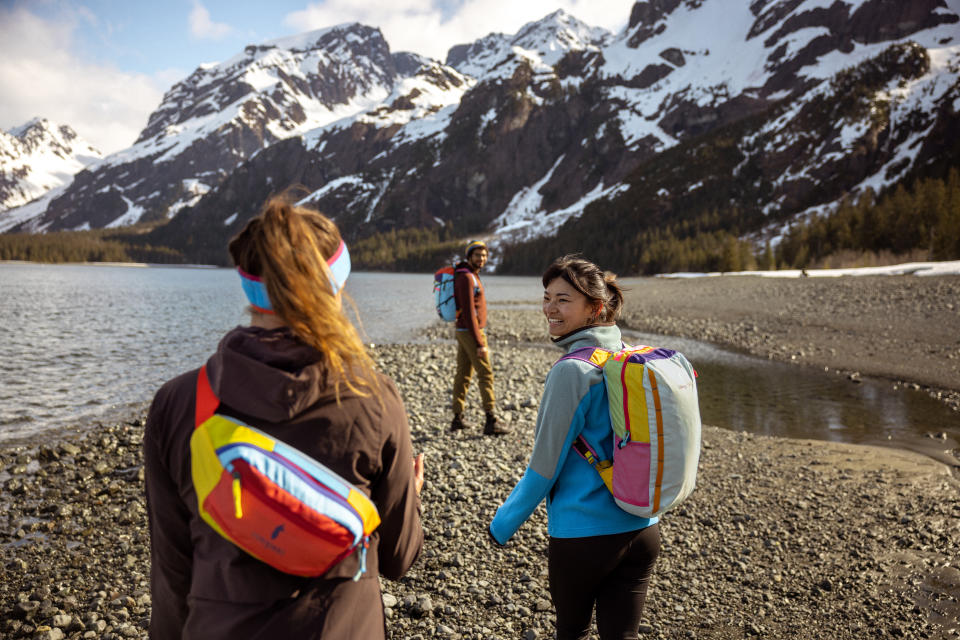
WWD: When did you expand beyond backpacks and what products do you offer now?
D.S.: About six or nine months later, we launched apparel — five jackets. It was kind of early, but we knew from the beginning that we wanted to be in the pack and outerwear space. We do have tents and a new line of some products that are launching over the next year or so. But the bulk is still packs and outerwear.
WWD: Do you sell outside the U.S.?
D.S.: We also sell in the EU and Japan, where we actually have two stores — Tokyo and Osaka — but 95 percent of the business is in the U.S. We have 10 stores in the United States and we sell through about 1,000 other retailers, a lot of small outdoor shops and independent outdoor retailers and larger retailers like REI, Dick’s Sporting Goods and Nordstrom. And then we sell on our own website direct-to-consumer, which is how we launched the business.
WWD: Your tagline is Gear for Good. Tell me about your mission?
D.S.: The very reason we exist is to fight poverty. We just happen to sell backpacks and jackets, and these really fun, colorful products because we want to make a difference in the world. And this is how we’re doing it. For the first five years of the business, we actually gave away more money than we made. It was a leap of faith and our investors were really patient with us as we navigated that. The last few years, the business has been profitable and we’ve been able to commit at least 1 percent of our revenue, and often more — in 2020, we gave 2.9 percent. For people that aren’t super familiar with business, they might think that’s a small amount, but when you actually understand it, with some companies, giving away 1 percent is like giving away 100 percent of your profits. So what we give away is almost all of our profit.
WWD: Can you describe how you give back?
D.S.: Beyond just grant giving, when you order a product from us, either on our website or from one of our retail stores, you get a handwritten thank-you card that’s written by a refugee. We have the Cotopaxi Job Club, where they get to practice doing job interviews and we help them create a résumé. We also work really closely with our supply chain. We have some Fairtrade factories and with one of them, we helped plant a community garden where they can use the vegetables and fruits and take them home to their families. We have another factory where we have computers and English classes for the children of the workers. The mission is deeply ingrained in every aspect of the business: the deeper you dive into the brand, the more you discover areas where we’re having an impact beyond just giving away money as grants to nonprofits.
WWD: How did you decide now was the right time to step away from the business?
D.S.: It wasn’t something I was expecting, or even planning on, really. I got a phone call in October, where a leader of our church asked to meet with my wife and me. Two-and-a-half hours later, we were in his office. And that’s when we realized our lives might change. They asked us to set aside our lives for three years. I’m not going to pretend that this is an easy thing to do, because it’s not, but the decision was easy. My wife and I looked at each other and we both said, “yes,” because we knew it was in line with our family’s values. We’ve always told our kids that giving and helping others and setting aside our own wants is what life is all about. It’s not just about making money and doing what we want. So what better way to show our children that it’s not just words that we’re saying or words on our wall at home but we actually live those values.
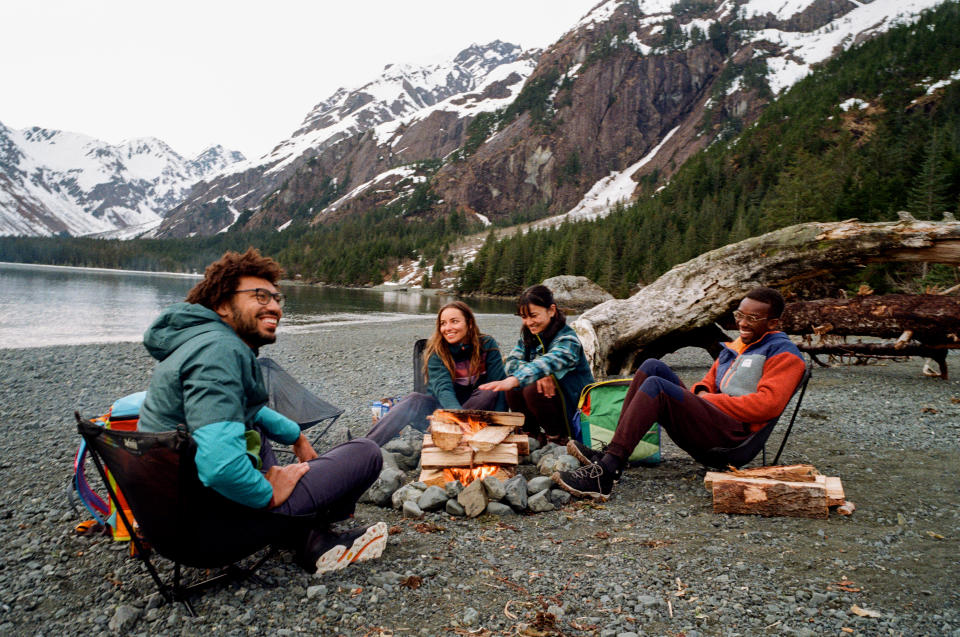
WWD: You added some key executives who will run the brand after you leave. Did you do that knowing this was your plan?
D.S.: I don’t see myself as the owner of Cotopaxi; I’ve always felt like a steward of the brand. If it were up to me only, I would be the CEO forever because I love it. It’s just so fun and so fulfilling, and something I truly am passionate about. I feel we have such a big opportunity to transform capitalism, to show that business can be done better. But I also recognize that while I’d love to be CEO forever, I am probably not the best CEO forever. I think I’m a great founder and had a big vision for what I wanted to build. But I also recognize there are better leaders than me that could help steward this brand in the CEO role. When I hired Damien Huang as our company president — he had been CEO of Eddie Bauer — I did understand that at some point, it was going to be the right time for me to hand things off to him and I would move into a chairman role and continue to add value in the best way that I could. I will say there’s some grief and sadness I feel in handing that off, because I just love so deeply what I’m doing. But at the same time, I know it’s the right thing.
WWD: Cotopaxi reflects your passion and commitment to giving back. How are you able to instill the same culture in people who didn’t grow up like you did?
D.S.: I’ve always had a great filter for hiring good people. We hire people that we love working with and who are passionate about our vision and what we’re trying to build. With Damien, for example, we had over 1,000 applicants for this president’s role. I spent five or six months going through these people and getting to know them and understanding who they were. And Damien stood out among everyone else, not just because he’d been at Patagonia leading their product or at The North Face for 10 years, or at Eddie Bauer for 12 years and was their CEO. What spoke to me about him was that not only is he an exceptional leader, but he’s a good person. When he was at Duke undergrad, he actually went and spent a semester abroad in Ecuador, he climbed Cotopaxi, the mountain, and he had spent some time volunteering in the Dominican Republic. He was committed to finding a way to help others. Both of his parents were immigrants so it’s like he understood our purpose in a deeper way because of his own upbringing.
WWD: What about the other executives you hired?
D.S.: We hired Grace Zuncic as our chief people officer from Chobani. When you meet her, you’re just blown away. She’s one of the most extraordinary leaders I’ve ever met, she just exudes kindness and compassion. But she’s wicked smart, driven and ambitious and believes in our mission. We’ve really tried to hire good people above all else. One thing I’ve talked a lot about from the beginning is this business won’t work if I’m the only keeper of the flame. We need every person in this business to be a keeper of the flame. And we tried to build a culture where we empower people no matter where you are in the organization, to innovate, to solve problems, to find ways to inject our mission and impact into their work. A lot of the great ideas that we have around our impact work has come from our team: an intern came up with the idea of the thank-you cards. Everyone feels empowered to come up with solutions and go make a difference and a positive impact.
WWD: When you’re focusing on your missionary work, are you really going to be able to disconnect completely? Are you still going to keep in touch?
D.S.: It’s a good question. I’m wondering the same thing. I know it’s going to be the most difficult thing I’ll ever do, so I’m bracing for that, but at the same time, I am going to stay connected to the brand, I’m going to continue to be the chairman of the board. So I’ll be on board meetings, I’m going to do onboarding with our new employees — I think it’s really important for new people that join the team to understand what we stand for, why we’re doing this, what we’re building, and to feel like they have a connection with me. But the day-to-day I’m not going to be involved in anymore. Then in three years, I’ll be able to come back and dive back in.
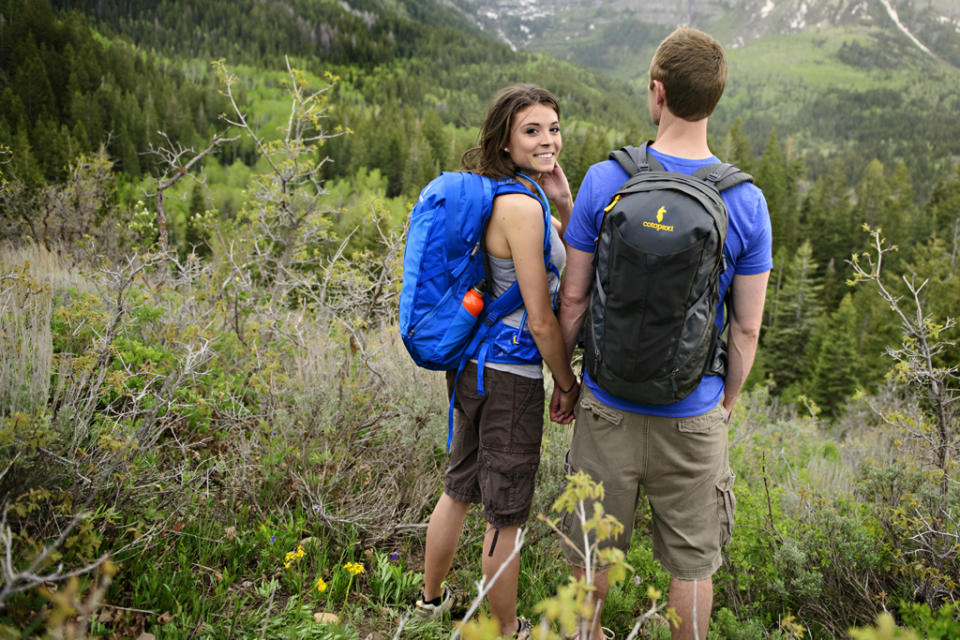
WWD: So you plan on returning to the business after your missionary work is done in three years?
D.S.: Oh, yes, I’m going to spend the rest of my life doing this. When I get back, I won’t be the CEO anymore, but I’ll be able to focus on the things that I’m really passionate about: our impact work, evangelizing, this idea of businesses being a force for good in the world. I’ll continue to be involved in our culture and in hiring extraordinary people. We haven’t hired a search firm, it was just me reaching out to people and building relationships and helping them understand what we’re trying to build. So I think I can continue to play a role in that as well.
WWD: What are you going to do on your mission?
D.S.: When I was 19 until I was 21, I was in Bolivia, and I met a couple, Tim and Sherry Parker, who were the mission leaders in Bolivia when I was a missionary. They were kind of like my parents — I was thousands of miles from my family and they inspired and led us and guided us — not just for the two years I was a missionary, but throughout my life. I’m in touch with them still. And they’re just such a great example of living a purpose-driven life. Part of my responsibility is going to be to lead around 300 or 350 missionaries over the next three years. And I hope I can inspire and guide them and help them. But my greatest hope is that after their missions that I can continue to have a role in their lives and they can continue to have a role in mine. I know they’re going to make my life richer, and I hope that I can inspire them to use their lives to be forces of good in the world, no matter what they choose to do.
WWD: Nate Checketts, the cofounder of Rhone, is also an active member of the Church of Jesus Christ of Latter-Day Saints. Do you know each other?
D.S.: Nate is a good friend. We actually started Rhone and Cotopaxi the same month. We invested $5,000 in each other’s businesses. Neither of us had any money, but we believed in each other and we wanted to signal support. And we talk on a regular basis. I’m a big fan of Nate and what he’s doing at Rhone.
WWD: How do your other investors feel about your decision to step away from the company? Are they nervous or they supportive?
D.S.: I think probably both. A few months ago, I spent one Saturday calling my executive team and board members individually. It was kind of an emotional experience. I called about 15 people: two of them are members of my church, so they understood, but I had to explain why I was doing this to the other 13. And you know, people responded incredibly well. I had one person that told me: “I’m jealous that you have something you feel so strongly about in your life that you could set everything aside.” I had a few others tell me they got emotional just hearing me explain why this mattered so deeply to me. So they were very supportive. I’m sure there was a little bit of nervousness but I think there’s also a lot of confidence in the team that we built. Over the last nine months, they saw this team work together and how exceptional Damien and these other leaders are. So I think there’s also a lot of confidence that the business was going to be OK. And I’ve also told them all I’m committed to this for the next 40 years and this is just three years. I’ll be back.
WWD: How will you apply the lessons you learned at a company making a profit to your mission work and vice versa?
D.S.: I think at the end of the day there are a lot of similarities. While Cotopaxi is a for-profit business, the reason that we’re making a profit is so we can use that to go lift communities and people. What I’m diving into is about motivating and inspiring people, helping them understand the greater mission and purpose that we have in life. It’s all about people — people are at the core of everything we do at Cotopaxi.
Best of WWD

